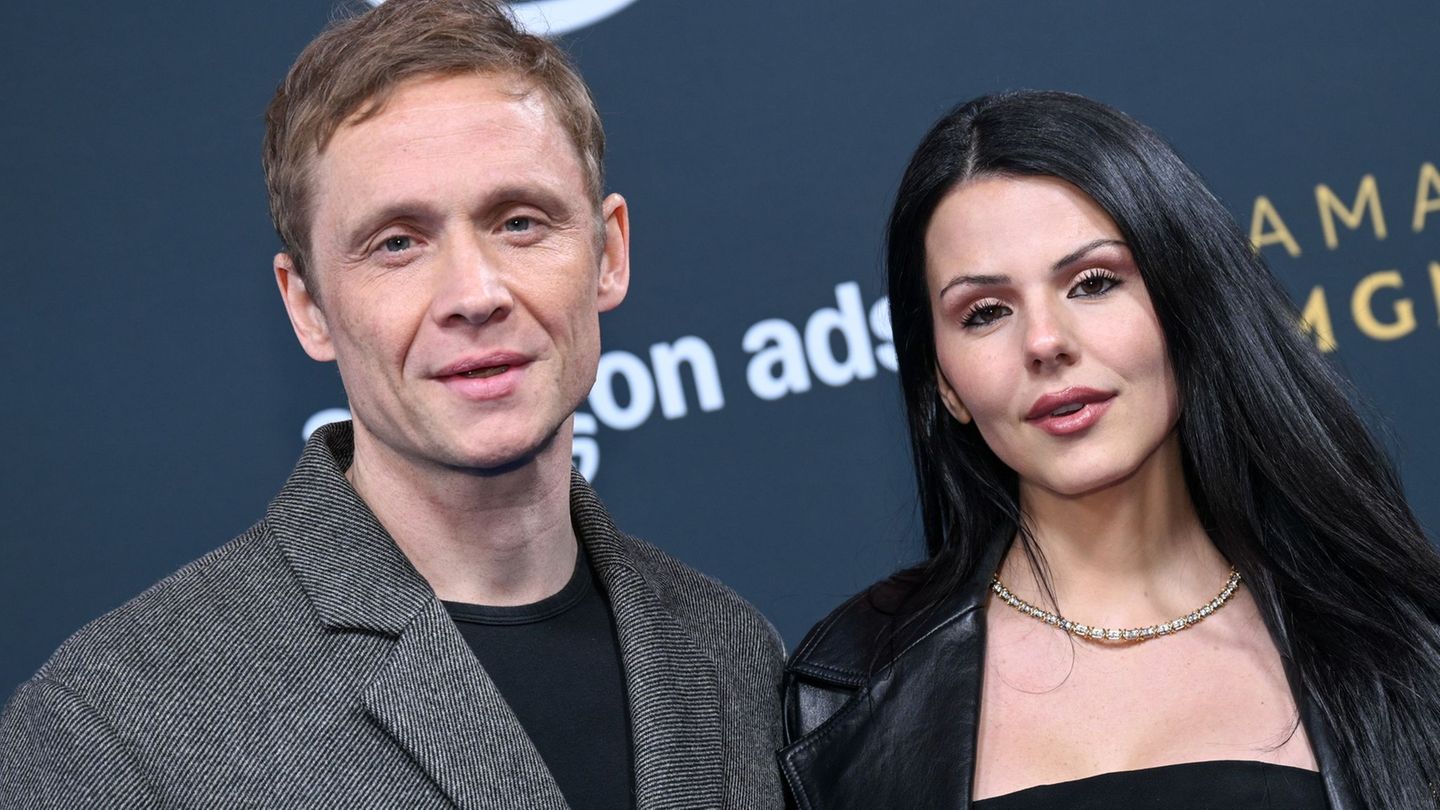True crime podcaster Sabine Rückert
When cases leave their mark
Copy the current link
Four episodes of Sabine Rückert’s true crime podcast “Zeit Crime” were filmed. For the journalist, one film is particularly moving.
Sabine Rückert (63) is a luminary in the field of crime reporting in Germany. The former court reporter founded the crime magazine “Zeit Crime” and has been hosting the podcast of the same name since 2018, in which she talks to her colleague Andreas Sentker (60) about spectacular, moving and complex criminal cases. She researched many of the stories herself.
Four podcast episodes were filmed with a top-class cast such as Sandra Hülser (46) and Lars Eidinger (48). The result is four award-winning crime films that, after their premiere at the Berlinale, will now be released on RTL+ on November 6th. There are also four documentaries in which Sabine Rückert once again delves deeply into the cases.
In an interview with the news agency spot on news, she explains why the authentic filming of the criminal cases was so important to her, which of the stories still concerns her today and what it takes for her to really sink her teeth into a case after all these years.
What was the idea for you to make a film of your podcast episodes? Was that something you envisioned for the podcast?
Sabine Rückert: Well, not at all at first, because I couldn’t even imagine what a podcast was all about and whether our company would actually become anything. It was far away that there could be a film adaptation. However, I was already used to the articles I wrote being exploited by television. I once even complained to Mitteldeutscher Rundfunk through a lawyer because a screenwriter for “Tatort” used my texts almost verbatim. I noticed this by chance because I saw the “crime scene” – they had stolen the plot and robbed my text for their dialogues at every turn. They even stole the title. So that was crazy. I’m used to being robbed by screenwriters who can’t think of anything themselves. But the fact that a journalistic achievement would be made into a serious film with considerable effort was new to me and unimaginable for me.
How important was it to you that the films portray the cases as authentically as possible?
Rückert: It was agreed that the films would stick to the cases and not serve as a quarry for the ideas of any screenwriters. For example, I didn’t want a politically correct statement to be added on top or central characters to be invented that didn’t actually exist. I was really annoyed a while ago by a film adaptation on ARD, “The Secret of the Forest of the Dead”. This is a series that we researched in “Zeit” and published as a crime series – and then filmed with the identical title on ARD, of course without asking. The original is about a woman who disappears and her brother, who is a high-ranking police officer, solves the murder of his own sister 25 years later. The ARD has turned the great and persistent investigation of this desperate detective into the great feat of a young, know-it-all and snarky detective who then of course solves the case on her own. The real hero, the victim’s brother, only appears in passing. To do this, they invented a brave little inspector who looks good and shows it to all the men – and that’s exactly the kind of film adaptation I hate. This is exactly the kind of nonsense I want to protect my texts from. And I told the production company that too. Three of our four film adaptations stick pretty closely to the original, the fourth film deviates somewhat from it, but not in spirit, but only in location. This is “The Panther”, the film with Lars Eidinger. But that’s so unusual and not politically correct that I’m totally okay with it.
Your podcast lives from the first-person narrative. With the film adaptation, this concept is unhinged; something is shown instead of discussed. To what extent does this change the way the cases work?
Rückert: I’m no longer there as a person. My role is now taken over by the camera, but the camera has always stuck to my point of view. The author can no longer be seen or heard, but it is his story and it is told from the perspective that he thought was correct. And in that respect I’m fine with it.
The film “December” is about the case of Robert, who is abandoned by police officers in a hopeless situation and ultimately dies. In the accompanying documentary you speak of a “feeling of hopelessness”. Has this often occurred to you in your work?
Rückert: Every now and then, yes. So the case of Robert from “December” is almost a traumatic case for me. This happened very close to where I live. I even drive past it often. That’s another reason why it’s a case that won’t let me go. That was terrible. And above all, it’s terrible that it wasn’t just an accident, but an act of ill will. It is the evil will of police officers, people from whom one actually expects good things. Just as it is particularly frightening when hospital staff become murderous or parents abuse their children to death. When the police get ready to do bad things to unsuspecting citizens, it comes as a special shock.
How do you manage to maintain a professional distance from the cases?
Rückert: I take a case home with me until it is written down and published. Then he is, so to speak, born and in the world. And I got rid of him. Then I tell myself it was a bad thing and it’s good that I reported on it. But now it’s over. It wasn’t my experience, but the experience of other people. I don’t have to live other people’s lives too. I’m busy with mine.
What was it like for you to finally see the cases you had researched on screen?
Rückert: Of course it’s a huge experience. Especially when it came to the very first case, the “December” case, which involved this terrible misconduct by two police officers, I really had to cry – every time. I’ve seen the film at least five times now and it always brings tears to my eyes because Robert’s death is filmed so authentically. The film is so faithful to the text and so faithful to the events and so faithful to the acts that every time I see it it makes me jump out of my seat and I’m really shocked.
After all your experiences, are there any cases that really captivate you?
Rückert: Yes, there is. But of course there are fewer and fewer of them. Man is just man. Everyone has a nose, everyone has two ears and everyone has a liver. And it’s a bit like that with criminal cases too. The murderers and criminals are not so fundamentally different from each other. They always have the same motives and the cases are often similar. That’s why every criminal case no longer blows me away like it used to. But there are still cases that are so special, so unusual and so complex that they draw me in. The older I get and the more knowledgeable I become in this field, the more I’m interested in how do law enforcement actually deal with the people involved? In my opinion, criticism of the law enforcement authorities and courts is far too poorly thought out in Germany. Most people just complain when judges let someone go. And the fact that they often do this rightly and for good reason does not matter in the press. But it is rare for anyone to recognize when public prosecutors or courts are really harming people. Most journalists don’t see that. They sit in court and write down their stories, but don’t see through it. This is a big problem. For example, this is something I’m interested in.
SpotOnNews
Source: Stern
I am an author and journalist who has worked in the entertainment industry for over a decade. I currently work as a news editor at a major news website, and my focus is on covering the latest trends in entertainment. I also write occasional pieces for other outlets, and have authored two books about the entertainment industry.




